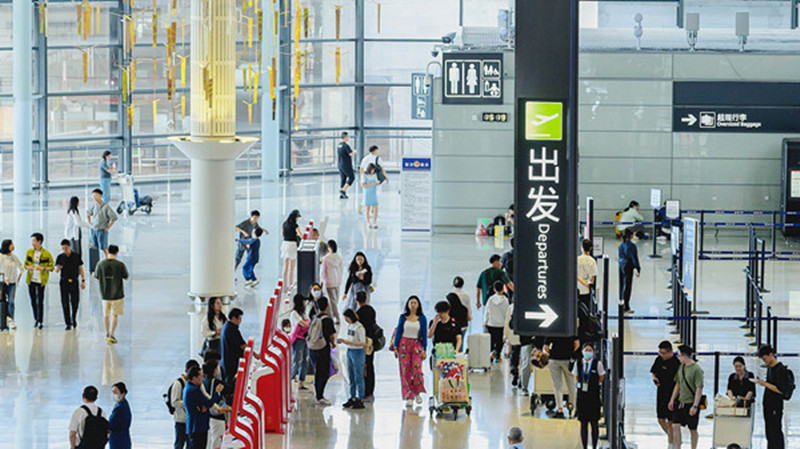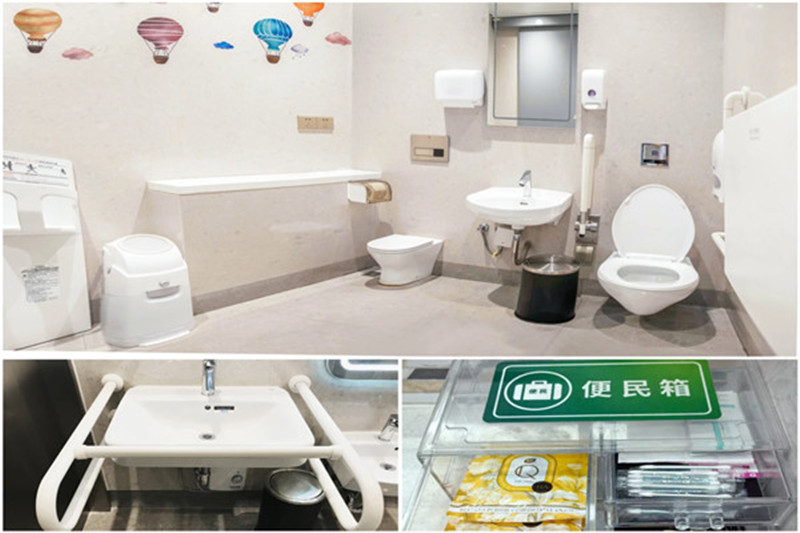Civil Aviation Administration of China: Power banks without 3C certification or recalled models banned on domestic flights
To ensure the safety of aviation operations, the Civil Aviation Administration of China has issued an urgent notice. Starting June 28, passengers are prohibited from carrying power banks that lack a 3C certification label, have unclear 3C labeling, or belong to recalled models or batches on domestic flights. (For details, please visit the official website of the State Administration for Market Regulation's Defective Product Recall Technical Center at www.samrdprc.org.cn/xfpzh/xfpgnzh)
Pudong Airport and Hongqiao Airport will enforce the requirements of this notice to ensure passenger safety. We kindly ask all passengers to comply with this notice by carefully checking the certification label, brand, and model of your power banks before traveling. Please do not bring non-compliant power banks on board. Remove your power bank before security checks to prevent travel delays.
Thank you for your understanding and cooperation.

Shanghai Hongqiao International Airport — located in East China's Shanghai — has been recognized as China's cleanest airport by SKYTRAX in both 2024 and 2025.
According to Skytrax, the airport's commitment to world-class cleanliness enhances the overall passenger experience while reflecting its mission that "Excellent life starts here".
Serving nearly 48 million passengers annually, Hongqiao Airport is said to place sanitation at the heart of the travel experience. In 2017, it launched its "high-quality restroom" project — combining smart designs, human-centered features and green solutions, to gradually install 10 top-standard restrooms over the course of seven years.
These restrooms feature fully automatic flush systems, occupancy indicator lights, energy-saving faucets and touchless operations. Spacious 1.2-meter partitions accommodate large luggage, while separate toilets, handwashing and preparation zones meet a range of passenger needs, including dedicated mother-and-baby rooms.
Free convenience items such as cotton swabs, bandages and feminine hygiene products are provided — complemented by a "first question, first look, first courtesy" service standard.
The initiatives combine modern hardware with enhanced human-centered services. In 2024, Terminal 2, Building A, won Shanghai's "Most Beautiful Restroom" award.

A model of efficiency: Shanghai's "Most Beautiful Restroom". [Photo/WeChat account of AVINEX]
To manage 450,000 square meters of terminal cleaning — equivalent to 66 standard football fields — Hongqiao Airport developed a precision management system. The framework covers precise indicators, refined processes, skills training, high-quality services and strict oversight across all cleaning operations.
The airport has even established China's first practical cleaning training base, replicating restrooms, elevators and walkways for hands-on learning. Twenty-six measurable indicators — from restroom cleanliness to waste retention — provide objective performance assessments. Monthly evaluations are linked to incentives, promoting staff initiatives and the quality of services.
Addressing its waste management, Hongqiao Airport produces over 20 metric tons of garbage daily. Following Shanghai's regulations on municipal solid waste management, it implemented what it calls "source reduction, fine sorting and smart management" strategies — introducing four-category multi-port bins and reducing 46 percent of collection points.
What's more, the airport has upgraded its sorting rooms from 40 sq m to 282 sq m and it currently oversees four cleaning subcontractors and one waste transport firm.
This integrated system allows precise monitoring of waste retention time, ensuring efficient handling. Passenger education on recycling and interactive displays are designed to further improve its accuracy in waste sorting.
In 2023 and 2024, Hongqiao Airport ranked among Shanghai's top transport hubs for its waste classification performance. Its reduction initiatives were selected as one of the 10 "new fashion" exemplary innovations in the city's three-year waste sorting anniversary, highlighting the airport's leadership in environmental management.
From the precise placement of a single tissue to the thorough renovation of an entire restroom, Hongqiao Airport has really got into gear. It wants to instill its commitment to being the "cleanest airport" into each and every cleaning standard — making them a key part of running a premium airport.
Behind this recognition lies the airport's relentless "pursuit of rigor, precision and excellence, driven by benchmarking and striving to excel".
In recent years, Hongqiao has continually pushed its own limits, striving for excellence and benchmarking against world-class airports.
By focusing on meticulous details and exacting services, it has set industry standards and quality models — creating a reproducible and scalable "Hongqiao solution" for cleanliness management and quality enhancement at major aviation hubs.